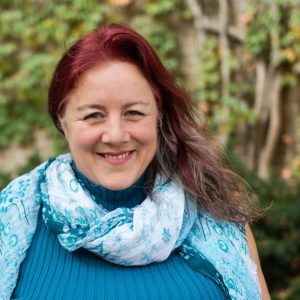Congratulations to Professor Michael Carter, Professor Jennifer Lapum and Professor Jacqui Gingras on receiving 2019-2020 Open Education Resource (OER) Library Grants.
The OER Library grant supports the development of open education resources by Ryerson faculty and staff. OERs are openly licensed learning materials that are freely available to be adapted, copied, and shared. These can include: courses, modules, textbooks, multimedia, assessments, and supplementary materials.
The grants advance the University’s priorities to foster an innovation ecosystem and ensure excellence in student learning experiences, while supporting access to essential learning materials.
Funding and support provided through the granting process is upheld by the Library’s commitment to and expertise in open access and open education resource publishing and dissemination.
Each year recipients are selected through the review and adjudication process carried out by the Library in collaboration with the Office of eLearning, the Learning and Teaching Office, and Digital Education Strategies at the Chang School.
2019-2020 Grant recipients:
 Michael Carter, Director of Industry, Master of Digital Media Program at FCAD, and Co-Investigator, Vincent Hui, School of Architecture
Michael Carter, Director of Industry, Master of Digital Media Program at FCAD, and Co-Investigator, Vincent Hui, School of Architecture
Project: Knowledge-making and 3D (Re)Visualization of Eastern Woodlands Indigenous History An Integrated and Interactive approach to Indigenizing Curriculum
Carter’s proposal supports the development of text-based curriculum to complement an existing virtual, interactive, 3D (re)visualization of an Eastern Woodlands longhouse. Working with a Ryerson Indigenous advisor and Ryerson Indigenous community members in partnership with the Nation Huronne Wendat, Prof. Michael Carter and his team will develop teaching resources to support an existing virtual and interactive learning environment, including an executable digital game asset. Through the creation of an open educational resource (OER), additional material will also provide instruction on how to use the digital assets, and further explore the historical and archaeological knowledge already available in multimedia format. The proposed OER will also offer an open source environment to allow for the material to be reinterpreted, repositioned and reengaged by those who wish to expand on its offerings.
 Jennifer Lapum, Daphne Cockwell School of Nursing
Jennifer Lapum, Daphne Cockwell School of Nursing
Project: The Nurse’s Physical Examination of the Patient
The proposal addresses the need for the creation of an open educational resource (OER) covering the four assessment techniques that comprise the nurse’s physical examination of the patient, which include: inspection, palpation, percussion, and auscultation (IPPA). These IPPAs are techniques foundational to physical assessment skills, and are applicable to each body system. Because such skills require tactile knowledge, the topic is well-suited for multimodal learning. In comparison with existing copyrighted resources, the proposed OER will offer experiential learning opportunities that leverage multimedia elements and interactivity to enhance students’ competency in conducting physical assessments and in preparation for clinical practice.
 Jacqui Gingras, Department of Sociology
Jacqui Gingras, Department of Sociology
Project: Sociology of Education in Canada, Critical and Indigenous Perspectives
The proposal addresses the need for an updated textbook for the course SOC 503: Sociology of Education. This course focuses on the “the functions of schooling and training in Canadian society.” This will include critical perspectives, including Indigenous perspectives on education that are informed by Indigenous ways of knowing with Indigenous consultation. The reason for the creation of an OER for this course is two-fold: 1) to update current scholarship related to the sociology of education; 2) provide opportunities to learn about Indigenous education in Canada, a topic not currently covered in many Sociology textbooks. As an OER, the book will be publically available, reusable and may serve to inform education decision-making.